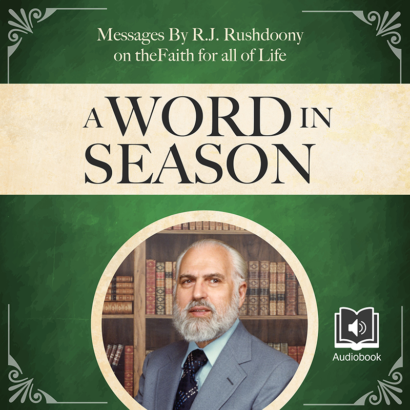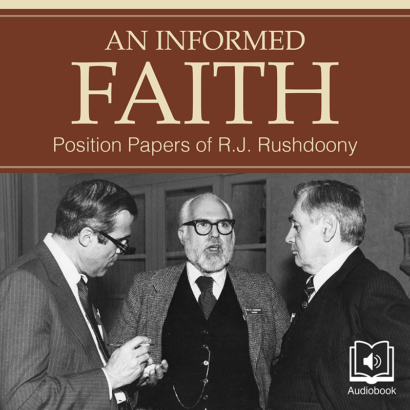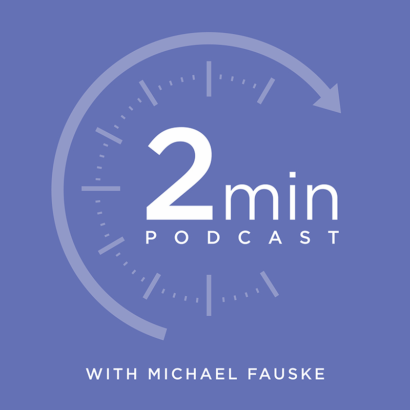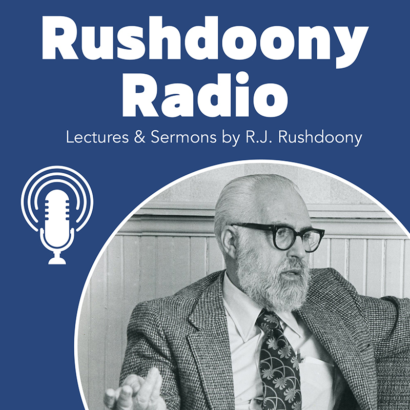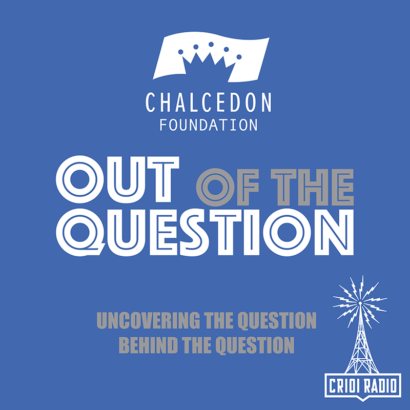
What is an Educated Child?
• May, 19 2024
In episode 16 of "The Last Kingdom," host Jeremy Walker explores the question, "What is an educated child?" Drawing from his experience as a parent and educator, Walker challenges the conventional focus on academic achievements, arguing that true education is rooted in moral and religious instruction. He emphasizes that an educated child should be equipped to navigate real-world challenges successfully and in accordance with biblical principles. Walker critiques the reliance on memory verses and catechisms as insufficient for moral education and advocates for teaching children biblical wisdom, understanding, and practical life skills. He stresses the importance of preparing children to be productive, morally upright adults who can make wise decisions based on God's laws.
Hosted by
Husband, Father, Pastor, Teacher, Podcaster, and Christian Education Advocate
- Series: The Last Kingdom
- Topics:
Jeremy Walker (00:21):
And welcome back to another episode of The Last Kingdom. I'm your host, Jeremy Walker. This is episode number 16 for May 17th, 2024. The title of this episode is "What Is An Educated Child?" Well, I want to kind of talk to everybody today off the cuff, kind of as a parent and as an educator. Somebody gave a question to me about what it was that I would promote about education, curriculum and what a child would need, and if they were going to learn, especially as they get older, talking elementary, middle school, or even high school levels. Homeschooling versus government schooling. And of course, what kind of approach, what kind of topics should they be discussing and talking about? And it kind of made me think.
(01:20):
Now I already have myself 11 children and I had to educate my children, and I'm still doing that right now, and I now have grandchildren as well. And so the question I thought, was a pertinent one, what is an educated child? Well, from a Christian perspective, an educated child, at least what I could come up with, was a person who knew how to operate in the real world successfully. I know that most people probably would not think that a very good definition for an educated child, but when you stop and think about education, what is the purpose of an education?
(02:03):
A couple different off the cuff ways to look at it, I guess. I mean is an educated child, somebody who's smart? And I talked about this in one of my other podcasts, Preschool Pioneers, focuses on education, and people like to think that they affect their children's level of intelligence. It's not something that we do control. It's not something that you can improve. You can put facts into a child, information. You can teach them reading, writing, arithmetic, history, science, biology, and anything else that you want to teach as far as a subject matter is concerned. But that would not be what is considered an intelligent child. That might be a academically educated child. That might be a better definition for that concept.
(02:56):
And so if you are a parent and you are looking to create a academically educated child, now then, you definitely better start focusing on all those subjects, reading, writing, arithmetic, and anything else that you want. But I tend to think that people get it wrong. I think that they miss out on the ultimate question, what is an educated child? I think that the Bible, if you're a Christian, I think that the Bible focuses on our moral education. Some people would include religious, but [inaudible 00:03:30] things are, to me, the same subject. Moral is religious. And that seems to be the largest focus of all, is creating a moral child, a child who knows God, their creator. A child who grows up and is not in rebellion to their creator. They are not a person who is trying to rebel against the government of the Creator. A person who knows the truth.
(03:59):
Now, we're not talking memory verses here. I mean memory verses is a different subject entirely. I would put the subject of memory verses, and I grew up in the church and that seemed to be a big shtick for a lot of people. I mean, they wanted their children to learn memory verses. For other people, it's, what do they call that? It's catechisms. They like the catechisms. They want the child to be able to regurgitate a catechism question-answer style or otherwise. And now this is supposed to be their religious training. And I don't have a problem with that, but I don't see it being the actual approach. Memory verses catechizing, I don't view those as being what I call an education or a biblical education.
(04:50):
For me, if I was just to do nothing, take away everything else that somebody has said or what you thought about, I think that people, when they become parents, they have no idea what they're doing and they don't know what they're supposed to be doing. And so they just jump into it and go, "Well, let me grab a curriculum book," and, "Let go get this. Let me go get that." And, "I got to teach my kids subjects. I got to do this." But they don't really focus on the moral side of things nearly as much as they do the academic side of things. And when I say the moral side, the religious side, I don't mean Bible verse memorization and I don't mean catechisms. I would put it under the category of wisdom, biblical wisdom, knowledge, understanding. This is not the same thing, even close to being able to regurgitate a Bible verse. Okay? It's not the same as regurgitating a catechism.
(05:49):
Now both of those things have their place. I'm not bashing memorization of the Bible. Absolutely not. And I'm not bashing catechisms. These two things are integral to a lot of different ways of teaching people in particular churches, and catechizing people is a great thing for evangelism. And down through the generations these things have been used successfully. But that's not what I mean. Educating a child, especially creating a morally, religiously educated child, is somebody who knows how to act in every different situation that they're going to run into. And not just do it successfully, but also do it according to God's Word. And that also would go into the definition of successfully. Because if you're a thief, you're not successful. If any of your reasonings, if your actions, are put into contradiction to the Word of God, the laws of God, then you are now unsuccessful. You're now a fool. You are now foolish. You are now a failure.
(06:57):
So I don't think that people focus enough and go, "I'm afraid. I'm scared that my children will grow up and be fools." I don't think there's enough parents out there that are concerned that their children will become moral failures. I don't see that. The reason I don't see that is because I don't see people putting a focus on their child's morals as their achievements. You know what I'm saying? When was the last time you heard a person bragging that all of their children grew up to adulthood, got married and were all virgins? When was the last time that this was a cornerstone of successful parenting? You know what I mean? Or of a person growing into adulthood. Something you could look at as an achievement, like the trophy for winning first place in karate or catching the football.
(07:55):
When was the last time that these moral achievements were your focus, they were your concern? And I just don't see them. I just don't think that people even think about that concept of a moral failure. They want their kids to be football stars. They want them to be singers. They want them to do good in the talent show. They want to get good grades. They want them to get all A's. They want them to be smart academically, intelligent, facts and information, but not so much about the morals. And because of that, there's cart versus horse and the cart is everything else that's not part of the moral education. That'll be all the academic stuff and other things that your child might be doing, the memory verses and the catechisms, but not the moral and religious education of a child. The wise, understanding, knowledgeable child and knowledge is not about academia.
(08:54):
It is about how to basically make a good judgment call on everything that you do. How to treat people, how to stay calm, how to work, how to settle altercations and problems and everything else that happens in your life. How to raise your children. And all these things have to do with biblical wisdom, biblical understanding, everything in the Book of Proverbs. But there are so many people that just don't think about educating their children and raising their children with these types of goals in mind. When was the last time that you heard somebody say, "My children were raised and they learned a trade; they learned how to work hard; they learned how to be trustworthy; they learned how to be very good in business (whatever that business is); they were good at handling their finances; they're good at handling their temper; they're very good at handling altercations when they come their way or avoiding altercations or not starting altercations"?
(10:04):
Where is the mindset that says these are a focus of our educational career for our children? And they put so much, so much focus on the academic side, and they beat themselves up as parents if for some reason they don't create the academically intelligent child. No, I don't see God when he says that he's going to judge us on Judgment Day, asking us how good we are in math. Asking us how good we are in language or in these other subjects. And don't get me wrong, not bashing the fact that we should not be teaching these subjects, it's that that's not where the success is at. Now I do know that obviously if you're not going to steal, then you need to know math, obviously. And you do need to be able to communicate. So you do need to have basic communication skills. But we're not talking about every person is able to do calculus. That's just ridiculous. You don't need that. You don't need every single person able to write a 1000-page novel. You don't need that.
(11:09):
There's so many things. Not everybody's a scientist and needs to know the periodic table. Not everybody needs to know history of what happened to the Indians or what happened in German culture in 1942 or whatever it might be. Now these subjects are fine to teach, but they're not what is considered to be an educated child. Just because your child has high intellect, one, you didn't do anything about that, and two, that has nothing to do with their education. A high intellect child will be able to grasp facts faster than a non-high intellect child. It doesn't mean that their child can't get there, it's just how quickly they can get there or how much they can remember. Completely different subject. But it has nothing to do with an educated child in my opinion. It's just not the focus. For me, I want my children to be successes in life. That means that they have to be ready to be adults.
(12:03):
So many people, especially people who come out of what we call the homeschooling movement, create what some people call eggshells. These are people who are socially awkward, very awkward around other people. They don't know how to communicate with other people. They don't know how to interact with other people. Most of their life has been away from people, away from the community, away from every single person who lives anywhere near them. And they usually stay inside the four walls of their home or on their property. They spend their times doing bookwork or running around outside, but they're not preparing for life. They're not put on schedules. They're not meant to get up at a certain time, go a certain place, do a certain job to fruition and to a successful outcome. Learning how to manage your money, earning money, learning a trade of any sorts, how to do business.
(12:57):
And I know that a lot of people in these movements will think that they can kind of open up an online eBay shop and somehow this was it because you created a homemade pocket leather wallet and you sold two of them at your local county fair. This is not the concept of business. This is not the concept of making money, earning money, saving money, wise spending of money. These subjects are completely different. And so for me, when I was asked and posed that question, of what kind of curriculum books I would suggest for people, I suggested that they find any curriculum that will give the basics. Basics in reading, writing and arithmetic. I grew up myself in government schools. I went through and graduated through high school. I did kindergarten and then all the way through 10th grade in a government school and two years of private schooling.
(13:58):
And here's the thing, people give a whole lot of negative energy and disappointment, degeneracy, towards the government school. And that's all true. It's all valid because government schools are not an option for Christians and for their children. But people will then tout and promote the idea of, "Well, our church, our church can start a school." And now all of a sudden we are going to have a Christian school because it's run by the church.
(14:30):
Well, the two years that I went to the private Christian school, or church school rather, it was supposed to be something that, at least the parents thought, was going to be different and better than the government schools. But the problem was is you ended up in these schools, the churches themselves don't have the law of God. So they're not teaching us to obey God's commandments just like the government school does not teach you God's commandments. It did a better job of focusing on academics. It's where I learned that though I was all the way through 10th grade, I could not read hardly at all. I mean I could read, but it was a horrible level. Let's say second or third grade level at best, if that. When we were reading out loud, I could not read out loud. The words themselves, even in basic books, it was too difficult for me to get through. I couldn't do it. But I was in honors classes in the government schools, and this was the sad state of affairs for government schools. They're not academic educational systems. They never were.
(15:37):
But I found that they did a better job. And I started to see the problems that I had. It actually made me want to help other people who were like myself, actually learn. And the bigger problem was the moral failures. The two years I was there, we got mostly all the dropouts, the kick-outs from the government schools. That's who came our way. All the problem kids. They got kicked out of the local government school, needed a place to go. They ended up at my school, at the church school. And they brought in with them all their degeneracy that they already had. And of course the church kids were no longer different. They were never different than the government school kids because we all went to the same schools. And of course, it didn't matter what church you went to because all the kids were educated the same. Now we were in a church school, now this was supposed to be different, but we're still getting the same moral education.
(16:33):
We were not being taught any different. We were not being given God's law. There was no standard for that. So we were not being given a moral or religious education that was any different than the government school. Are homeschools any different? When you homeschool your kids, are you giving them a moral and religious education? Are you actually teaching them God's Law, God's standards, how to live, what is appropriate, what is not, based on God's law? Not your church, not your personal preference, not your family's personal preferences either. But what God says is moral and right and wrong, good and evil. I would venture to say that most people do not. They do not do that. So is a homeschool, is a church school or a government school, any real difference between them? No. If they're being given the same level of moral education, which is one that's vacant of God's standards and God's commandments, then there is no difference between them. You'll turn out with the same form of result.
(17:39):
Now, you might have a differently educated child. This one's better at math. That one's better at reading. This one had a sports curriculum, so they grew up doing sports. And this one had an arts class and this one, now these kids can play music. Over here on the homeschool setting, they can now learn instruments. So now they're musically inclined over here. But what does any of that have to do with raising an educated child, a godly, educated child? None of it. None of it has anything to do with any of that.
(18:12):
You can learn math, you can learn writing, language, all that stuff. But if you don't have a moral religious education, grounded on the law of God, that binds your every action, binds your very thoughts and propels you into the future of how you're going to make decisions, how you're going to engage society and life as you move forward, how you're going to choose your spouse, what kind of spouse you're going to choose, how you're going to raise your kids, then you have failed.
(18:45):
You have failed as a parent, completely failed. I do not care if your child is smart and can learn facts. I don't care if they're very good at mathematics. I don't care if they can write books that would make Shakespeare weep. I don't care if they could play music that would make Beethoven wish he could hear again.
(19:07):
And none of that matters if they are moral failures. So why are we spending so much of our time, so much of our attention, on focusing on the trivial aspects and missing the mark? Now, it doesn't mean that we neglect the others, but they're not our primary focus. Stop and ask yourself a question. Does my child need this in order to succeed? If he's interested in history later, can he not just learn history later? Can't he pick up a book as an teenager, as an adult? Can't he learn about history later if he wants to do that?
(19:45):
Yeah, he can. He can pick up a book any time he wants. The internet is a thing people. Can't he do anything if he wants to get better at it. See me, I consider myself now, a very above average person. I have a family of 11. I'm a husband. I run a business. I'm a supervisor for seven preschools that are very successful. I have tons of employees who I'm responsible for and take care of. I have my own children who have grown up and are now successfully also running businesses alongside me and my family. And I can honestly say that these are the things that you should be focusing on, the end result of what you're attempting to look for. How much of these educational factors do you need? Because I did all that and my education didn't really get better until I was tossed out into the world.
(20:42):
My education really started when I was 18 and the real world came a-calling. That's when I learned how to do math better. That's when I learned how to read better. I mean, it could have happened before that, but it wasn't a detriment to me that I was poorly educated to begin with. I had a very good, in a lot of ways, moral teachings in so many ways. There were failures, but I like to focus on the positives. And as I was converted at 17, that moral education got even better and better because the Holy Spirit teaches us and matures us and sanctifies us in that direction. And so for me, I like to focus on that stuff, is that a lot of stuff comes with time. It's not that you have to get all these things in before they're 14 years old. A lot of the things are interest areas, a lot of stuff you'll never need. You don't need the periodic tables. Why even learn stuff that you're never going to learn?
(21:39):
But so many children never learn a work ethic. They never learn a trade. They never learn public relations, which is probably one of the biggest things on the planet. People learn the concept of debate class. What kind of stupid moronic concept is that? The idea of debate actually is one of the most unbiblical topics in the world. We're not here to debate anybody. We are here, if you're a teacher, to teach. Parents are to teach. Everybody are teachers, not debaters. People want to debate with you. You move on. These are called fools. And so many people think that they're helping their kids as they get older or going to join debate classes. No. What you're creating is a person who is going to be immoral.
(22:23):
We're not here to argue with people. We're here to edify people. And that's not done by debating. But this is another concept that people think furthers their child's educational career and furthers them in the future. How many people in business are debaters? There's no concept in business where you debate. You provide a service for somebody else, you help the customer. That's what you do. You don't debate with anybody. You're productive. How productive is your child now? How productive is your child going to be in the future, based on what you've taught them, based on how you've educated them? Are you doing anything that's really going to promote that child to make them better?
(23:04):
See, I think when we stop and ask ourselves how we want our children to look when they're older, what we want them to do when they're older, I think that changes the answer we give ourselves and puts a better question or rather, maybe, answers the question better about what I want to do now because I know where I want to go.
(23:32):
It's like you're going on a vacation and so you have the checklist of things that you want to pack, because by the time you get there, you're going to need this. So I would say, if you have children, view the concept of education, of child-rearing, of homeschool, view that as the question mark of where is my child going to be in 20, 25 years? What do I need to pack for them so that when they get there, they're ready? They have their toothbrush, they have their deodorant, they have their clothes, they have their underwear, they have their socks. They have everything they need to succeed when they get wherever they're going.
(24:08):
I think that might be a better way for parents to think about the concept of child-rearing and where they want to go. And if you're a Christian, that concept is a wise, understanding, knowledgeable child that has the Word of God on their heart. They can't have that unless you teach them.
(24:24):
So anyways, this is Jeremy Walker, Last Kingdom, answering the question, what is an educated child? I hope I gave you something that was different than what you've heard before. And that's just my take on it. Well, thank you for listening to me rant today. Talk to you again. Thank you and God bless.
More podcasts in series

Does Good "Trump" Evil?
Nov 10, 2024

What Happened to All the Violence?
Oct 21, 2024

Building a Better World
Sep 28, 2024

The Evil of Hero Worship
Sep 21, 2024

Nebuchadnezzar's Proclamation
Sep 15, 2024

Johnny Cash's Middle Finger
Sep 07, 2024

2024 or 1984?
Aug 27, 2024

Train Up a Child
Jun 29, 2024

A Living Dog is Better than a Dead Lion
Jun 23, 2024

No Fate But What We Make
Jun 16, 2024

The Roses of Success
May 12, 2024

Breaking News
Apr 28, 2024

The Fallout and the Way Back
Apr 19, 2024

Up From Slavery
Apr 13, 2024

Community Standards
Apr 05, 2024

He Arose
Mar 29, 2024

I Have the Power to Crucify Thee
Mar 22, 2024

The Fear of the Wicked, It Shall Come Upon him
Mar 15, 2024

Love Thy Neighbor, and Hate Thine Enemy
Mar 12, 2024

We Fight Not Against Flesh and Blood
Mar 12, 2024

I Will Fear no Evil
Mar 12, 2024

We are Blessed, You and I
Mar 12, 2024

You Reap What You Sow
Mar 12, 2024

Setting Up and Removing Kings
Mar 12, 2024

A New Heaven & A New Earth
Mar 12, 2024



